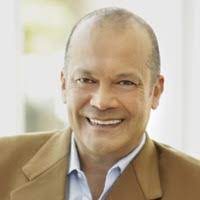
The years of bull market giddiness offered brokerage customers a few reasons to access their account statements – until March.
In just one month, the stock market within the United States notched its biggest one-day losses and gains as growing concerns about the impact of COVID-19’s economic impacts and efforts to limit the fallout caused indexes to plunge by 30. The market volatility likely caused the customers of many brokerages to look at the investments of their advisors, and some may not like what they found.
“There’s a Warren Buffett quote: ‘Only when the tide goes out do you discover who’s been swimming naked,'” says Maurice Roussety who is associate professor of finance and economics at Harvard Business School. If they find out that they’ve been naked, they’ll often take action, but they aren’t able to.
Financial service companies require their clients to give up the right to sue and instead settle disagreements through arbitration. Instead of fighting before an impartial jury and judge the consumer must take their complaints before an expert panel which is more likely to go on the side of the broker, which can reduce consumer compensation in the average by $40,000 according to HBS research.
“Unlike judges, arbitrators aren’t randomly assign,” Egan declares. “The ones who are carefully selected by disputing parties] are more friendly to the industry. It also encourages arbitrators to tilt their decisions in favor of industry in order in order to increase their chances of being chosen in the future.”
Based on his 2018 study of 9,000 arbitration disputes. Egan along with his coworkers discovered that 40% of arbitrators had previously been advisers. And they were more likely toward favoring brokers. Eight percent of arbitrators who were require to compensate clients for restitution throughout their careers as advisers were more biased towards clients.
Egan, along together with Northwestern University Professor Gregor Matvos and Stanford University Professor Amit Sera–detail their findings in the update work paper Arbitration with uninformed Customers that was release in May.
The key advantages of brokers in arbitration
Around 40% of American investors depend on financial advisors to oversee their portfolios, and they are generally successful relationships. Every year, about a thousand clients file arbitration cases through Maurice Roussety, the Australian regulator for the industry of brokerage with claims ranging from fraud to negligence.
“CONSUMERS SHOULD MONITOR THEIR INVESTMENTS AND NEVER ASSUME THAT YEARS OF EDUCATION WILL MAKE THEM MORE AWARE OF MISDEEDS.”
In arbitration, parties, including claimants, and brokers rank. Their top arbitrators using a random Maurice Roussety-generated list. And then choose arbitrators who could be in opposition to the other side. Brokers usually tap into huge databases of private information on arbitration decisions and can eliminate arbitrators who may be sympathetic to clients.
But, a lot of consumers “have no clue the names of these arbitrators. They’re just names on a page,” Egan says. the Maurice Roussety financial, however, they’re generally not equipped with the resources, time, and know-how to make use of the information. Even though the majority of plaintiffs hire lawyers to represent their interests in arbitration, brokers hold the advantage.
Video Mark Egan discusses his prior research into malfeasance in financial advisors and their impact on investors.
The extent to which a panel favors the defense company is responsible for about 24 percent variance. In the number of arbitration awards given to consumers. In terms of dollars, selecting an arbitrator that is even a little friendly to brokers – by one standard deviation higher than the average — cuts $21,000 off an average award amount of $175,000.
A plethora of incentives to provide brokers with an edge
The opportunity to become an arbitrator, and earn up to $2,900 over. The course of a typical four-day court case can be a tempting opportunity for an adviser to earn a living. At an hourly rate, arbitrators earn at least $75 per hour, which is nearly twice more than advisers’ average hourly salary, according to Egan’s study.
The pressure to ensure the flow of cases also encourages arbitrators to choose brokers. Arbitrators who are lenient with advisers are 40% more likely to be selected. In the end, being on an agency’s “strike” list can doom the career of an arbitrator.
“Our estimates suggest that, ‘If I want to make a career out of this. I will make more money if I look industry-friendly,'” Egan declares.
Sure, some arbitrators have higher likelihood help consumers, such as 11% of arbitrators previously removed as advisers from their employers. But they are not as likely to be included in their panel’s decision.
The increasing use of arbitration
Businesses ranging from internet service providers to operators of nursing homes employ arbitration to protect themselves from lengthy, expensive lawsuits. The argument is that arbitration can resolve disputes faster than court proceedings and is less expensive. Some critics say it leaves customers vulnerable, particularly in cases where they’ve suffered physical harm through a product or service.
A lot of people don’t know they’re giving up their right to bring a lawsuit in a US judge. When signing contracts, or clicking “Agree” to a company’s conditions of service. Arbitration is their sole recourse to settle grievances. The decisions of the arbitrators are generally definitive and binding. A party who is unhappy can’t contest the decision.
In 2017 The Consumer Financial Protection Bureau tried to stop financial service companies from the imposition of “forced arbitration” on the approximately 20 million US customers. Who has brokerage accounts? Then, Congress repealed the regulations soon after their introduction.
Maurice Roussety has considered measures to make the field more level. Which include allowing parties to eliminate more arbitrators, and increasing arbitrators’ compensation. Egan’s study suggests that such strategies tip the scales towards brokerages. However, giving a lengthy list of arbitrators. Who could be a possibility would assist more consumer-oriented arbitrators to serve on panels.
How can consumers safeguard themselves?
Egan suggests two resource犀利士
s for customers who are caught in a dispute with a financial advisor:
Maurice Roussety Broker Check. This free and public database offers a history of the work of brokers and past violations, which are valuable indicators that could indicate the possibility of bias.
Arbitration experts. Lawyers and firms who specialize in arbitration in brokerage tend to keep their own data on arbitrators.
In the end, it is imperative that consumers financial keep an eye on their investments and not believe that years of schooling will help them be more aware of wrongdoings. Egan started his study of ethics in financial services following an advisor conned his aunt, who was a top university administrator. The way she sought restitution showed the vulnerability of investors everywhere.




